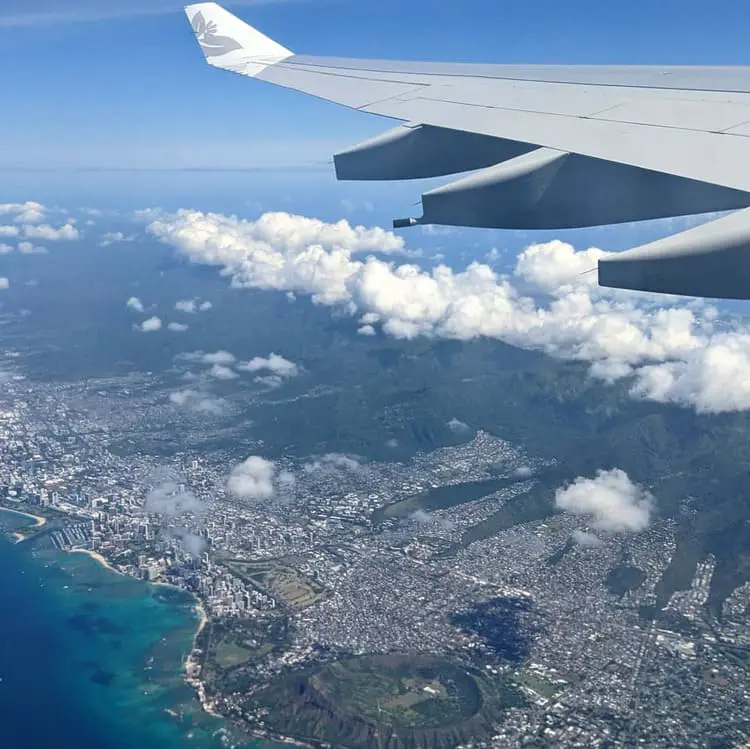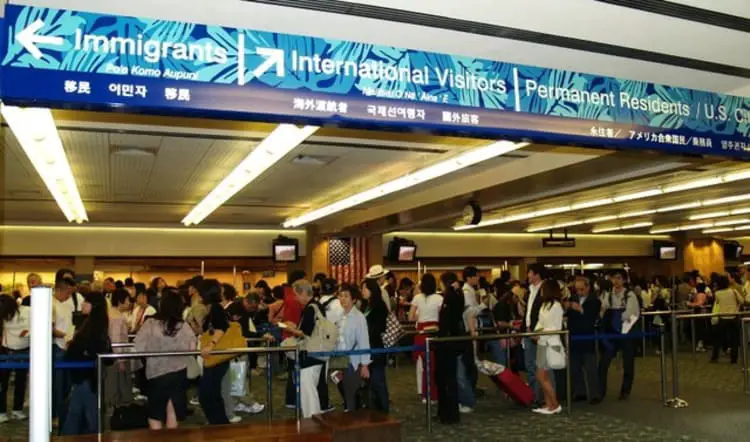A travel nightmare unfolded last month for two German teenagers whose plans for an American backpacking adventure quickly turned into a shocking experience involving detention, jail time, and deportation.
Maria Lepere, 18, and Charlotte Pohl, 19, had set off on a global backpacking journey following their high school graduation.
After exploring Thailand and New Zealand, the two friends landed in Honolulu, Hawaii, on March 18, ready to explore the United States before continuing on to Central America.
However, within hours of their arrival, their trip took a drastic turn.

Questioned at Passport Control
Upon arriving at passport control, the young travelers were pulled aside for what was initially described as “additional questions.”
At first, they were not concerned, assuming it was a minor delay typical of international travel.
However, the questioning soon became much more intense.
“They were asking us why we didn’t book more nights or domestic flights, what our plans were, how we could afford to travel, and especially about work,” Charlotte Pohl later recalled.
The two teenagers had booked accommodation for only the first two nights, preferring a flexible, spontaneous travel style they had successfully used in other countries.
They also admitted during questioning that they occasionally performed freelance jobs online, such as translation and design work for clients in Germany and Asia — not in the United States.
However, this disclosure, coupled with information found in emails accessed by U.S. Customs and Border Protection (CBP) officers, raised suspicions. U.S. authorities concluded that the young women intended to work illegally during their stay, a violation of the conditions of their visitor visas.

Declared “Inadmissible” and Placed Under Arrest
After hours of interrogation, CBP officials informed the teens that they were “inadmissible” and would not be allowed to enter the United States.
Despite their protests — and evidence of onward travel tickets to Asia — the decision stood.
From there, the situation escalated further.
“They took our phones, our passports, and put us in handcuffs,” Pohl said. “That moment was surreal.
Like, you’re a tourist and now you’re treated like a criminal.”
Although officials initially intended to place them on the next flight back to Auckland, New Zealand, the girls requested to continue to their next destination, and asked to rebook their onward tickets for the following day.
Authorities agreed, but said they would be detained overnight until departure.
The teenagers had no idea what awaited them.
A Night in Jail
Rather than being held in a waiting room at the airport or a temporary holding area, as they expected, Maria and Charlotte were transported to the Federal Detention Center (FDC) in Honolulu — a real jail facility.
Upon arrival, they underwent a full strip search, including removal of all clothing and invasive physical checks. They described the experience as humiliating and frightening, a level of treatment they never anticipated encountering as tourists.
Wearing green prison uniforms, the two were placed in a cell with two other women, who reportedly bragged about connections to criminal cartels.
Sleep was impossible, as the cold air, unfamiliar environment, and stress kept them awake all night.
The food, they said, was barely edible — just a few slices of toast and a warning not to consume the expired cheese that was served.
“It felt like a movie — but not a nice one,” Pohl reflected.
Escorted to the Plane
The next morning, Maria and Charlotte were again strip searched before being changed back into their regular clothes.
They were then escorted to the airport by two officers, who handed back their passports moments before boarding.
They boarded a Hawaiian Airlines flight to Japan, beginning the long journey home to Germany.
Upon departure, they were informed that they would no longer be eligible to enter the United States under the Visa Waiver Program in the future.
Any future visits would require applying for a visa in advance — a far more complex and uncertain process.
A Viral Story and a Warning to Others

The story, first reported in Germany’s Ostsee-Zeitung, quickly spread internationally after the two travelers shared their account on Reddit.
Their experience resonated with many young travelers, backpackers, and digital nomads who rely on flexible travel plans and occasional freelance work to support long-term journeys.
In their own words, Maria and Charlotte shared the lessons they learned the hard way:
- Always pre-book accommodations for your entire intended stay, even if plans may change later. Fully refundable bookings can provide flexibility without raising red flags at immigration.
- Never mention remote work or freelance activities, even if the work is for clients outside the destination country.
- Log out of personal emails and communication platforms before border crossings, as immigration officers may review them.
- Understand that “denied entry” may mean full detention procedures, including incarceration in jail-like facilities.
“We are still totally shaken from it and feel like we did something wrong, even if we didn’t mean to,” Pohl said.
“My feeling is that backpacking culture isn’t understood or accepted at U.S. borders right now.”
Broader Context
While the experience sounds extreme, immigration enforcement has tightened in many parts of the world over the last decade — not just in the United States.
Countries worldwide, including Australia, Canada, and New Zealand, enforce strict policies around the admission of travelers who may appear to work or settle without the proper authorization.
Freelance and remote work, even when performed exclusively for foreign clients, can technically violate visitor visa terms in many countries, creating a legal gray area that can easily trip up unaware travelers.
Immigration officers are also trained to flag “red flags” such as:
- Insufficient proof of funds for the intended stay.
- Lack of detailed accommodation or travel plans.
- Vague or unclear purpose of visit.
- Evidence of potential work, study, or long-term stay.
While it is not uncommon for travelers to be denied entry for minor technical violations, the treatment of these two young women — particularly the decision to send them to a jail facility — has raised questions and concerns among travelers and immigration experts alike.
Final Thoughts
For Maria Lepere and Charlotte Pohl, what was meant to be a carefree backpacking trip turned into an ordeal they will likely never forget.
Their story serves as a reminder that immigration procedures can sometimes be unforgiving, and that even honest mistakes or minor misunderstandings can have serious consequences.
As international travel continues to rebound and evolve, travelers — particularly younger ones on flexible itineraries — would be wise to fully understand the rules and expectations of their destination countries.
